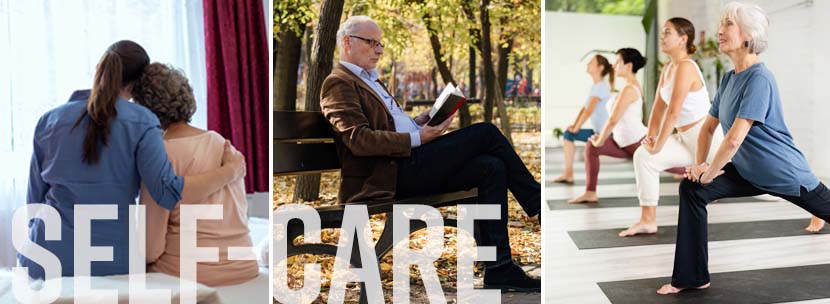 February 19th, 2026
February 19th, 2026

5 Expert Tips to Prevent Caregiver Burnout
Being a caregiver is one of the most meaningful and selfless roles a person can take on—but it can also be physically and emotionally exhausting. Whether you’re caring for an aging parent, a spouse, or a friend, it’s important to recognize the signs of caregiver burnout before it impacts your health and well-being.
According to the Cleveland Clinic, burnout happens when caregivers don't get the help they need or try to do more than they’re able—physically or financially.
Source: Cleveland Clinic – Caregiver Burnout
What Is Caregiver Burnout?
Caregiver burnout is a state of physical, emotional, and mental exhaustion. It’s common among people who are providing long-term care without enough support, rest, or time for themselves.
Common signs of caregiver burnout include:
- Feeling tired all the time
- Irritability or mood swings
- Loss of interest in activities you used to enjoy
- Trouble sleeping or focusing
- Feeling overwhelmed, isolated, or hopeless
The good news? Burnout is preventable with the right tools and support.
5 Expert Tips to Prevent Caregiver Burnout
1. Ask for Help
You don’t have to do it all alone. Reach out to family members, friends, or professional caregivers for support—even small breaks can make a big difference.
“You may feel guilty asking for help, but you’ll be a better caregiver if you get the help you need.”
Source: Family Caregiver Alliance
2. Set Boundaries
Know your limits. It’s okay to say no to requests that drain your energy or compromise your health. Setting boundaries helps preserve your mental and emotional well-being.
3. Make Time for Yourself
Whether it’s 15 minutes of quiet time, a walk outside, or a favorite hobby, daily self-care isn’t selfish—it’s essential.
4. Join a Support Group
Connecting with others who understand what you’re going through can reduce stress and remind you that you’re not alone. Local chapters of the Alzheimer’s Association, AARP, and other senior support organizations offer both in-person and virtual groups.
5. Use Respite and Adult Day Care Services
Temporary care options like respite stays or adult day care programs give you time to rest, recharge, and take care of yourself while your loved one receives compassionate care.
Support for Caregivers Starts Here
At American House, we understand the challenges caregivers face—and we’re here to help. American House partners with families to offer resources and monthly virtual caregiver support groups to give caregivers peace of mind and time to recharge.
Click Here to learn how we support families and caregivers just like you.
FAQs: Preventing Caregiver Burnout
Q: What are the warning signs of caregiver burnout?
A: Common signs include exhaustion, irritability, lack of motivation, trouble sleeping, and feelings of being overwhelmed or isolated.
Q: How can I reduce stress as a caregiver?
A: Building in self-care routines, asking for help, taking breaks, and connecting with support communities can help reduce stress and prevent burnout.
Q: Can senior living communities help support caregivers?
A: Yes. American House communities offer services like respite care, adult day care, and ongoing support—helping caregivers rest, recharge, and ensure their loved ones are cared for.
Sustaining Your Health While Caring for Others
Caregiving is a profound act of love, but it should never come at the expense of your own health. By recognizing the signs of caregiver burnout, practicing self-care, using technology, and accessing support networks, you can build resilience and provide stronger, more compassionate care.
At American House, we stand beside caregivers—offering not just senior living options, but also resources and expert guidance to help you feel supported every step of the way.
Find a community and schedule a visit today to see how we can support both you and your loved one.

More to read
Let’s find your community
Maintaining a home and your health can become a challenge as you age. American House provides the care, amenities and services that make life easier. Find out how American House can help you live life to its fullest.
, View Community



